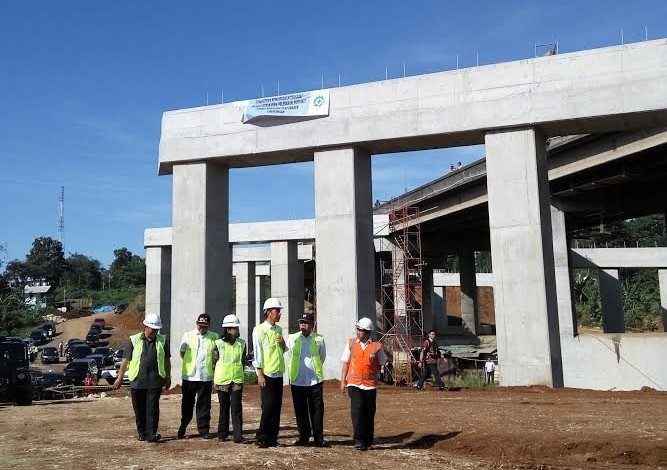Popular Reads
Top Results
Can't find what you're looking for?
View all search resultsPopular Reads
Top Results
Can't find what you're looking for?
View all search resultsRegional issues may thwart infrastructure spending
Change text size
Gift Premium Articles
to Anyone
R
egional administrations may face challenges in implementing an upcoming rule to boost infrastructure spending in their regions, owing to low capacity and weak spending quality.
The new rule, in the form of a finance ministerial regulation, will require regional administrations to boost their role in infrastructure spending next year, as the 2017 State Budget Law stipulates that regions must allocate a minimum of 25 percent of their budget for infrastructure development.
The 25 percent allocation for infrastructure must be included in the general transfer fund (DTU) — which comprises revenue-sharing funds (DBH) and general allocation funds (DAU) — from the central government.
The government’s seriousness in developing infrastructure is shown through the allocation of Rp 387.3 trillion (US$29.04 billion) for infrastructure in the 2017 state budget, a 22 percent increase from the previous year’s revised budget.
The Finance Ministry’s Regional Fiscal Balance Director General Boediarso Teguh Widodo said the upcoming revised policy would comprise clear guidelines for regional administrations to arrange programs and projects for the 25 percent allocated infrastructure funds in their budgets, as well as the reporting procedure.
“Regions will be punished for failing to allocate 25 percent for infrastructure,” he said without providing details.
According to data from the ministry, 363 out of the 542 regions across the country spent less than 25 percent of their budget on infrastructure in 2015. Boediarso acknowledged that some regions remained weak in infrastructure spending, as they chose to spend mostly on routine expenditures, such as salaries and operational activities.
The implementation of the new policy, however, may not be as smooth as expected.
Papuan People’s Representative Council (DPRP) Commission C chairman Carolus Bolly said the province’s lawmakers and administration had yet to receive the technical guidelines on the government’s new infrastructure policy, preventing them from starting discussion on the province’s 2017 budget with less than two months left.
Papua has allocated Rp 1.1 trillion in infrastructure funds in this year’s regional budget, excluding the special autonomy funds of Rp 5.4 trillion under the 2001 Papua Special Autonomy Law.
Hendrik Paut, the secretary of Kupang regency in East Nusa Tenggara, said the “mind-set” of officials was a potential obstacle.
The Kupang regency will maintain the portion of its public spending at a minimum of 60 percent in 2017, the same as this year. A major portion of the spending figure will be channeled for agriculture-supporting infrastructure since agriculture has become the largest revenue source in the region.
Economists have said that while the new strategy would help accelerate infrastructure development, a special allocation alone would not solve all infrastructure problems because many regional administrations had their own issues to deal with.
“Outside Java, many [officials] are still clueless regarding the most suitable and effective infrastructure projects for their regions, while having limited available funds,” Center of Reform in Economics (CORE) Indonesia research director Mohammad Faisal said.
Apriadi Gunawan, Severianus Endi, Jon Afrizal and Wahyoe Boediwardhana contributed to the story.










